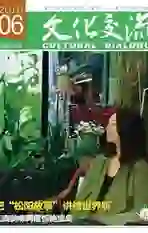松阳的实践对世界充满借鉴意义
2018-06-09徐馨
徐馨
在伊达斯建筑论坛位于柏林市中心的办公室,克里斯汀、汉斯讲述了他们和松阳的故事。
和伊达斯关注过的世界上其他地方的建筑实践相比,松阳乡村发展的独特之处是什么?
最大区别是,它切实发生了。我们在欧洲和世界上其他地方讨论被人们忽视的乡村问题,我们开会、做展览,但是中国在行动,在向前推进,不是在空谈。我不知道建筑师徐甜甜和当地人这种非常好的互动,是如何建立起来的,重要的是他们找到彼此,彼此支持、彼此信任,共同推进。
徐甜甜是切实关心这个地区,为这个地区考虑。有一些乡村建设是“大动作”,建工厂,松阳实践不是这样,松阳是“针灸式”的,在正确的地点、正确的时机,这样做其实是更需要时间和付出。比如大木山茶坊,具体负责的当地女孩从学习茶道的年轻人成长为可以教茶道的老师。再比如在平田村的农耕馆,从传统农艺的展馆到扎染坊、住宿、建筑、环境,所有这一切彼此适配,据我所知,这一点在国际上也是独一无二的。
印象很深刻的是,村和村是彼此连接很好的社区。这个展览上每一个具体的建筑项目,都不能和其他几个分开,不是说“这一个”如何,而是如何通过当代建筑改善推进乡村生活。建筑师非常用心地和当地政府、村民合作,也给我深刻的印象。他们彼此都非常清楚可以利用当代建筑设计,来创造一种新的乡村身份认同,给当地人一种价值感,建立起新的乡村自信。除此之外,这些建筑还是非常有根基的基础设施,这些设施不仅把村和村、村和县连接,而且在村子内部也是如此,两个向度,一个是向内把人连接在一起,一个是向外的連接。
高速铁路、飞机、高速公路改变乡村,互联网的发展也推动乡村发展。我们去平田村,看到年轻人利用互联网把村子和这个世界,至少和中国其他地区连接在一起。对此我们并不惊讶,我们惊讶的是本来希望德国农村也能这样,但是德国没有做到。德国、甚至整个欧洲都有这个问题,我们忘记了不在城市生活的人。而要想在乡村生活甚至创造新经济,不能没有和城市的联接。松阳,在这方面是一个非常好的例子,我们都可以从中学到很多。
为什么举办这一展览?
我们需要这种对话,“对话”是伊达斯一直以来的宗旨之一。乡村问题是全世界都在面临的问题。欧洲人有时是有一点傲慢的,他们知道正在发生什么,但是假装没看见。我们很重要的目标是要让他们了解世界上其他地方在做些什么,他们可以从中学习到很多。“松阳故事”接下来还将会在今年的威尼斯双年展及瑞士、奥地利等国展出,国际著名建筑师、学者也将到松阳参加国际论坛,大家将一起讨论、学习“松阳故事”这个精准的、了不起的实践,这个实践对整个世界都充满启发和借鉴意义。没有真正的现实的榜样,只有理论,讨论很难真正深入。尤其在威尼斯双年展上,很多人都在,我相信会有更多机构续展,那将是“松阳行动”!
为什么给展览取名“松阳故事”?
这是我们这个很棒的团队共同想出的名字。当你要探讨一个话题的时候,以讲述故事的方式进行,有个人化的讲述和感受,才能打动人。这是一个故事,不是一个项目。而且故事有延展性,不会终结。我们想要讲好这个故事,而且是在世界范围内讲述。
是的,“松阳故事”将在更广阔的天地与不同文化背景的人见面、交流。“从事论坛工作38年,我从未见过如此令人激动、如此面向未来的实践。”克里斯汀语气笃定,让人感受到她对松阳乡村振兴实践的热忱。
在中国广袤的土地上,和松阳一样脚踩大地,摸索着从泥土里生长出来的实践之路还有很多——那都是未完待续的中国故事,是一个个普通中国人用双手在大地上写下的朴素的精彩篇章——此时此刻,正等待我们去发现,去阅读,去传播。
In the office of Aedes Architecture Forum in downtown Berlin, Ms. Kristin Feireiss and Mr. Hans-Jürgen Commerell talked with me about their appreciation of the Songyang Story. Hereinafter is a summary of the interview.
Xu Xin: What is so special about Songyang in comparison with other places in the world that Aedes has concerned itself with?
Kristin Feireiss: The biggest difference is that Songyang has happened. In Europe and other parts of the world, we have held conferences and exhibitions when we presented the overlooked rural issues. But China has taken action and has been pushing it forward. China does. There is no empty talk. I am not sure how architect Xu Tiantian set up such excellent interaction with local people, but what matters is that they have found each other, trusted and supported each other, and made progress. Xu Tiantian concerns herself with the region and puts her heart in the interest of the region. Some rural regions engage in big moves such as building a factory. Songyang does not do that. What Songyang does is something like architectural acupuncture: at the right time and the right opportunity. Such accurate solutions take much more time and dedication. As far as I know, the Songyang practice is unique, if examined in an international perspective.
Hans-Jürgen Commerell: I was deeply impressed that the villages in Songyang are well-connected communities. Individual cases at the exhibition are well connected. You cant separate one from the rest. A discussion of a case will naturally leads to a discussion about how modern architecture improves rural life. I was also deeply impressed with the architect who cooperated whole-heartedly with the local government and village residents. Together they knew the modern architectural design could create a new rural identification, render a value system, and establish a new confidence in the rural region. This is the primary factor that people stay in the village and the factor that attracts people to come back. Meanwhile, these buildings can boost the development of micro-economy. Moreover, these buildings are also fundamental infrastructure, which serves as a connection between villages and between villages and the county. Two dimensions: they connect people in rural communities and they connect to the outside world.
High-speed railways, airplanes and express highways change countryside and internet also drives rural growth. While we were in Pingtian Village, we saw young people connected the village with the world, at least with other regions of China. We were not surprised to see these things in China. We were surprised that Germany hasnt done the same. We hoped rural Germany could have done this. Germany and Europe have this problem. We forget those who are not living in cities. Living and creating a new economy in countryside needs connections with cities. Songyang is a very good model, from which we can learn a lot.
Xu Xin: Why hold this exhibition?
Kristin Feireiss: we need such a dialogue. Dialogue is one of the principles of Aedes since its inception. Rural issues are universal all over the world. Let me put it this way: Europeans are sometimes a little bit arrogant. They know whats happening but pretend they dont see it. It is our key task to allow Europeans to know what people are doing in other parts of the world so that Europeans can learn. “Songyang Story” is scheduled to continue at the national architecture museum in Switzerland, the national architecture museum in Austria. Xu Tiantian will be attending the Venice Biennale this year. People will discuss and study “Songyang Story”. It is an accurate and great practice and is enlightening and significant to the world. Theory contributes little to discussions. Examples in real life do. Many people will attend Venice Biennale and I believe Songyang Story will have more opportunities to be exhibited. That will be Songyang Action!
Xu Xin: Why did you name the exhibition Songyang Story?
Kristin Feireiss: we have a great team and this team chose the name. When you need to explore a topic, the best way to go is to tell a story. Only a human story can touch people. Songyang is a story. It is not a project. Moreover, a story goes on and does not come to an end. We wanted to tell this story well and tell it in the context of the world.
Yes, Songyang Story will meet people with different cultural backgrounds in a broader world and exchanges will take place. The first stop was Berlin. Then it will go to the Venice Biennale, the national architecture museum in Basel, Switzerland, and the national architecture museum in Vienna, Austria. Prominent international architects and scholars will also attend an international forum in Songyang. I have been at Aedes for 38 years, but I have never seen such an exciting and future-oriented practice!
